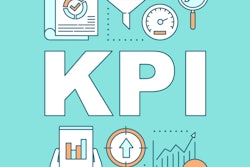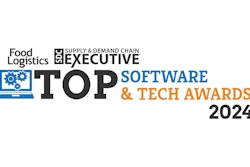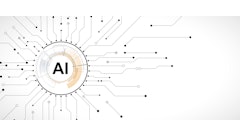
Artificial Intelligence is no longer a mere buzzword or confined to proof-of-concept experiments; it has emerged as a game-changer, revolutionizing businesses by transforming critical processes, supercharging efficiency, and accelerating operational speed. This paradigm shift is particularly evident in the supply chain sector, where AI is driving unprecedented improvements. The rapid advancement of generative artificial intelligence (Gen AI) is poised to revolutionize supply chain operations, offering unprecedented opportunities to streamline processes, optimize decision-making, and drive operational excellence. However, As CIOs and supply chain executives navigate this transformative landscape, they realize that this journey requires a thoughtful approach, addressing budgetary considerations, change management and a deep understanding of the impact Gen AI will have on existing workflows and processes.
Gen AI harnesses the power of cutting-edge algorithms and machine learning to generate novel data, insights, and solutions that can profoundly transform supply chain processes. This disruptive technology has demonstrated remarkable potential to revolutionize key areas like Demand Forecasting, Inventory Management, Supply Chain Optimization and Quality Control, unlocking unprecedented levels of efficiency and operational excellence.
On the supply chain efficiency improvement aspect, Gen AI has the potential to streamline supply chain processes by automating repetitive tasks, optimizing decision-making, and providing real-time insights. By leveraging natural language processing (NLP) and machine learning algorithms, it can analyze vast amounts of data, identify patterns, and generate actionable recommendations. This can lead to improved inventory management, optimized routing and logistics, and proactive risk mitigation strategies. Moreover, Gen AI can facilitate seamless communication and collaboration across the supply chain ecosystem. Intelligent virtual assistants can interact with stakeholders, answer queries, and provide personalized support, enhancing customer experience and fostering stronger relationships with suppliers and partners.
Gen AI also plays a pivotal role in quality assurance and control processes. Through computer vision and image recognition capabilities, Gen AI can detect defects, anomalies, and non-conformities in products or components with unparalleled accuracy. This can significantly reduce the risk of quality issues, minimize waste, and ensure consistent adherence to quality standards. Furthermore, Gen AI can assist in predictive maintenance by analyzing sensor data and identifying potential equipment failures before they occur. This proactive approach can minimize downtime, extend asset lifespan, and ensure uninterrupted operations, ultimately contributing to higher quality outputs.
While the technology is available, so are partners with companies who have been helping clients with the successful implementation of AI models into their supply chains, for a successful integration CIOs and supply chain executives should plan around the following steps:
- Assessment of Current supply chain infrastructure and identify areas where Gen AI can add the most value
- Stakeholder Alignment among key stakeholders, including supply chain managers, IT teams, and executive leadership, on the goals is key to the success of this initiative and the teams also have to agree on the expected outcomes of Gen AI integration
- Pilot Programs to test Gen AI applications in specific areas or use cases of the supply chain. Use these pilots to gather data, refine algorithms, and assess ROI
- Develop a scalable implementation plan based on the insights gained from pilot programs while ensuring the chosen solutions can be scaled across the entire supply chain,
- Implement robust Data privacy measures, understand and align to industry regulations and ensure continuous monitoring and audit to detect & mitigate security threats
- Change Management to address potential resistance to change by providing training and demonstrating the tangible benefits of Gen AI
- Finally, for the success of Gen AI, KPIs and metrics, feedback loops and benchmarks have to be established and monitored and processes to be put in place for adjustments where needed
Above all, the integration of Gen AI into supply chain operations also requires careful budgetary planning and resource allocation. CIOs and supply chain executives must assess the upfront costs of implementing Gen AI solutions, including hardware, software, and training requirements. Additionally, they should create their own ROI models, considering the long-term cost savings and operational efficiencies that Gen AI can deliver. They also need to put in the processes to regularly conduct cost-benefit analyses to ensure the financial viability of Gen AI projects and adjust strategies based on these analyses to maximize ROI thereby enabling a more informed decision-making process.
While integrating Gen AI into supply chain operations definitely offers a pathway to enhanced efficiency, improved quality, and optimized budgets, it also presents an opportunity for cross-functional collaboration and innovation. CIOs and supply chain executives should foster an environment that encourages experimentation, ideation, and the exploration of new use cases for Gen AI. By partnering with technology providers and industry experts, organizations can stay ahead of the curve and continuously refine their Gen AI strategies.
Moreover, embracing open innovation models and leveraging the collective intelligence of the supply chain ecosystem can accelerate the development and adoption of Gen AI solutions. Collaborative efforts can lead to the creation of industry-specific benchmarks, best practices, and shared learnings, ultimately driving the entire supply chain industry forward. As the supply chain landscape continues to evolve, the integration of Gen AI is no longer an option but a necessity for organizations seeking to remain competitive and future-proof their operations



















